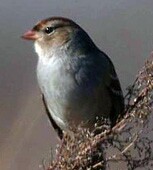
MONDAY, March 18 (HealthDay News) — Cliff swallows in Nebraska with shorter wingspans that help them take off more quickly and pivot away from passing cars have a reduced risk of becoming roadkill, a new study reports.
The findings suggest that cities can be hot spots of evolution, said the authors of the study published March 18 in the journal Current Biology.
“Evolution is an ongoing process, and all this — roads, SUVs and all — is part of nature or ‘the wild.’ They exert selection pressures in a way we don’t usually think about,” Charles Brown, of the University of Tulsa, said in a journal news release.
He and his colleagues have been studying cliff swallows in Nebraska since 1982. The birds build clusters of mud nests on vertical walls under bridges, overpasses and railroad tracks. Their colonies often number in the thousands.
Every year for the last 30 years, the researchers have traveled the same roads to collect swallows that have been killed by vehicles and compared them to swallows that suffered other types of accidental deaths.
The data show a sharp decline in road deaths over the last 30 years, and the drop can’t be attributed to declines in the swallow population or in traffic volume. The researchers found that swallows that continue to die on the roads have longer-than-average wingspans.
“Longer-winged swallows sitting on a road probably can’t take off as quickly, or gain altitude as quickly, as shorter-winged birds, and thus the former are more likely to collide with an oncoming vehicle,” Brown said.
Wingspan may not be the only factor, said the researchers, who noted that swallows can learn from one another. So although there was an association between longer wingspans and road death in the cliff swallows, the study did not prove a cause-and-effect relationship.
The fact that these swallows appear to be evolving to reduce their risk of being hit by vehicles may be good news for other species, such as turtles and snakes, that are frequent roadkill victims, the authors noted in the release.
More information
The Cornell Lab of Ornithology has more about cliff swallows.

